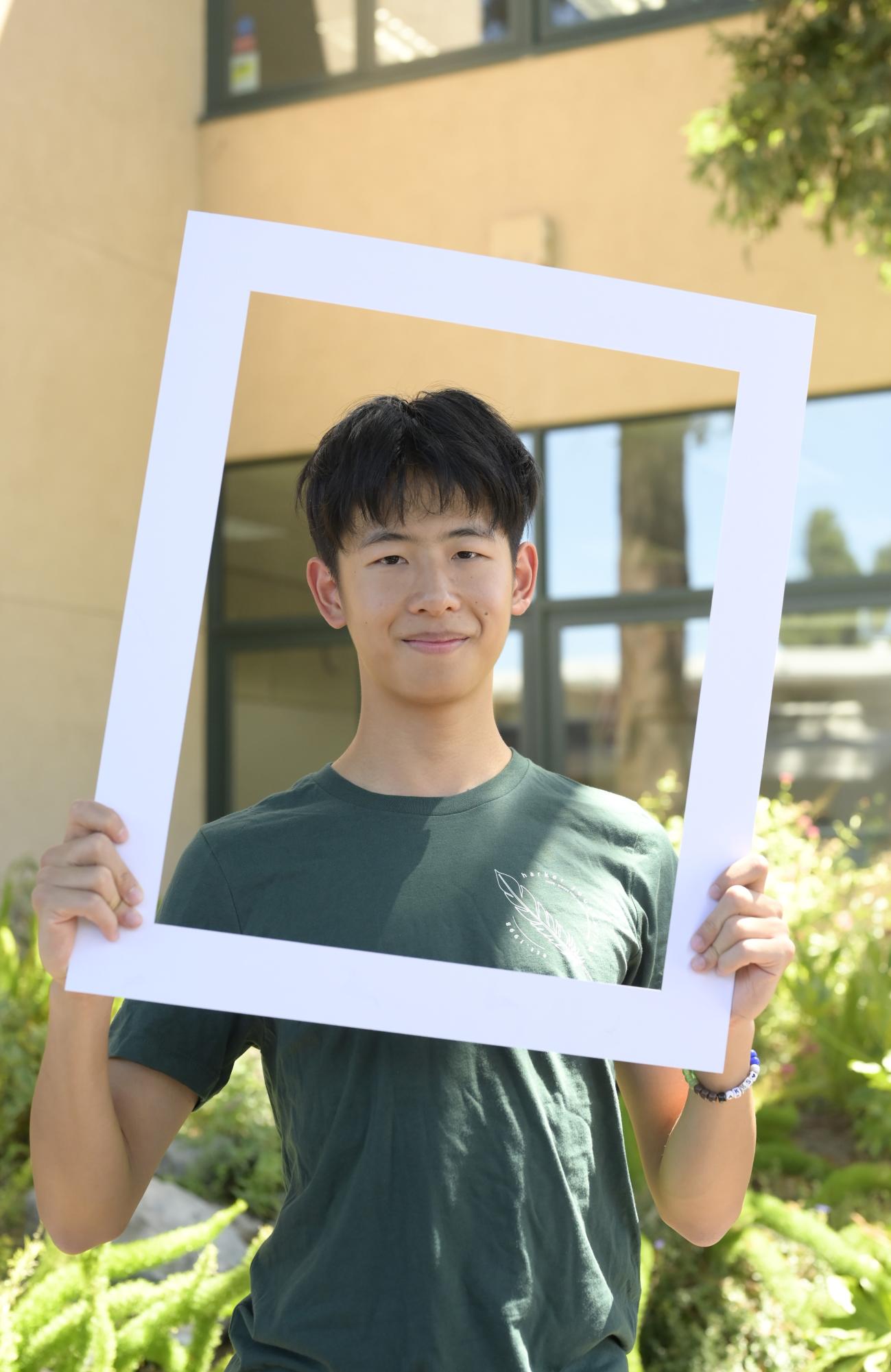I joined Harker in fifth grade. One of my first memories of that frankly overwhelming year was a math lecture with my classmates: one not held in school by Harker faculty, but in a dingy room just outside Great America by Poh Shen Loh, the former coach of the U.S. International Mathematical Olympiad team. If you couldn’t tell, my parents dragged me there and I quickly zoned out, fiddling with a loose screw on the chair.
But I really started paying earnest attention when near the end of his presentation, Loh grandly declared an equation he believed amounted to the success one achieved in life: “how many people remember you after you die” multiplied by “how long they remember you for.” I froze for a heartbeat, struck by the statement’s simple profundity. The most notable figures in history — Shakespeare, George Washington, Michael Jackson, even — live on in the memories of millions who utter their names to this day.
To my 12-year-old self, joining a brand-new school at the dawn of adolescence, Loh’s words could only mean one practical thing: I had to be as well-liked as possible. This simple equation imbued in me a voracious appetite for praise. Praise was a reassurance, a confirmation that I’d stick around in people’s minds for just a little longer. I would tell tiny lies, chronically. “Pentatonix is my favorite artist!” Who? Whatever, I’ll search them up later. “Yeahhh, I love their music!!” I’d reply, hoping I’d get a complimentary remark or two about my music taste.
I convinced myself that time spent gaining someone’s favor was more impactful than time spent for myself. A friend asked me to find a page number for an uncited quote. Throwing down my own essay, I spent an eternity leafing through my book just to resurface proudly exclaiming, “Forty-two! Forty-two!” I’d then glance at my half-finished essay, left untouched for several minutes, and start typing quickly, driven by adrenaline, shame or some mix of both.
As the years passed, my never-ending to-do list gobbled up more and more of my time. Loh’s words faded from the ever-present foreman directing my mind to a quiet presence in the back of my head. I lived a life increasingly dictated by deadlines, and I couldn’t afford to spend every second worrying about impact this, impact that.
It wasn’t until spring of sophomore year that the equation finally reemerged. Ever since I entered high school, I had been elected and re-elected to one of four spots on student council. The more I led meetings, organized fundraisers and staffed raffles, the more I knew leading my peers was for me. There was genuinely nothing else I was willing to throw down homework, hang up on a friend or take dinner to my room for. So when I couldn’t find my name on the 2024-25 student council list, you can probably imagine my shock. Questions upon questions: Why? What have I done wrong this year? How could I even live without a platform to change the school? The last question particularly stung. I thought back to Loh: consciously or not, the guiding force behind a good half of my adolescence. With this loss, surely I’d have lost all impact.
Yet now, writing this piece, I’m finally able to reconcile Loh’s equation with my failure. Yes, I’d lost. Fair and square. But for two years, I had received irrevocable proof that every part of leading — the glamorous, the unsung, the ugly — was made for me. I was inherently willing to work, and work hard. I had discovered what you might call my identity: the specific means by which I could achieve Loh’s coveted impact.
I can’t deny that perhaps, for whatever reason out of my control, how I’d led on council in the past year lost me a portion of the vote. If you asked fifth grade me if this was a failure, he would absolutely say yes. But if you ask me now, I’d reconsider. While my immediate impact diminished, I had nevertheless discovered leadership: just one way I’d want to make an impact in the future.
So, I’d like to propose a footnote to Poh Shen Loh. Indeed, success equals how many people remember you after you die multiplied by how long they remember you for. But only if you’re doing what you love.




Fang Zhu • Sep 30, 2024 at 3:11 pm
What a beautifully reflective and honest piece! Your journey of understanding leadership, self-worth, and impact is something many of us, even as adults, grapple with constantly. It’s so important to realize, as you have, that *not* being on student council is far from a failure. In fact, it’s a lesson that success doesn’t always come from titles or recognition but from the process of finding what truly drives you.
We adults often find ourselves caught in the same habits of saying what we think others want to hear, striving for likability, and sometimes losing sight of our authentic selves in the process. Your honesty about telling little lies for the sake of validation really resonates—many people, regardless of age, can relate.
As for impact, you touched on something profound. How long will you be remembered, and for what? That’s a question we all face, and the answer lies in doing what we love, as you wisely concluded. The truth is, the people who matter will remember the moments where you stayed true to yourself, not the number of titles or positions you held. And as you’ve shown in your reflection, sometimes setbacks are the very things that help you discover your own path and passion.
Nice job on this article—it’s thoughtful, candid, and insightful. Keep leading in your way, and trust that the impact you make doesn’t always have to be immediate or obvious to be lasting.